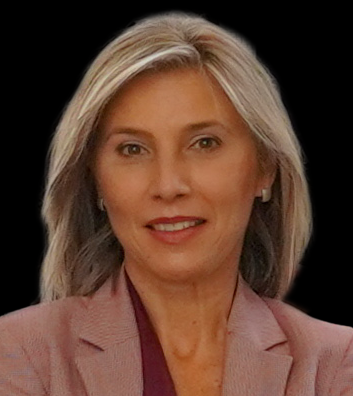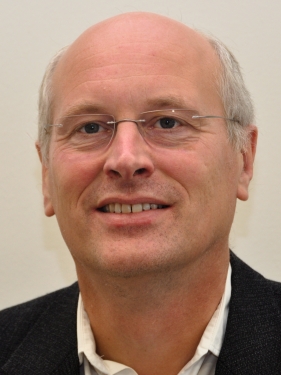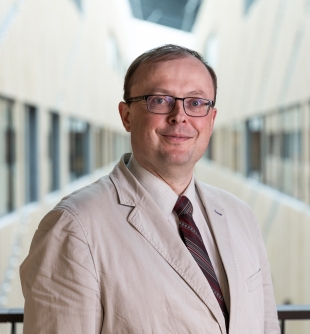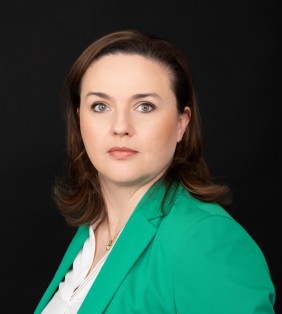Keynotes
 Towards Active Inference for Distributed Intelligence in the Computing Continuum
Towards Active Inference for Distributed Intelligence in the Computing Continuum
Schahram Dustdar
Head of the Research Division of Distributed Systems at the TU Wien, Austria
Schahram Dustdar is a Full Professor of Computer Science at the TU Wien, heading the Research Division of Distributed Systems, Austria. He holds several honorary positions: University of California (USC) Los Angeles; Monash University in Melbourne, Shanghai University, Macquarie University in Sydney, and University Pompeu Fabra, Barcelona, Spain. From Dec 2016 until Jan 2017 he was a Visiting Professor at the University of Sevilla, Spain and from January until June 2017 he was a Visiting Professor at UC Berkeley, USA.
From 1999 – 2007, he worked as the co-founder and chief scientist of Caramba Labs Software AG in Vienna (acquired by ProjectNetWorld AG), a venture capital co-funded software company focused on software for collaborative processes in teams. He is the co-founder of edorer.com (an EdTech company based in the US) and co-founder and chief scientist of Sinoaus.net, a Nanjing, China-based R&D organization focusing on IoT and Edge Intelligence.
He serves as Editor-in-Chief of Computing (Springer). Dustdar is the recipient of multiple awards: IEEE TCSVC Outstanding Leadership Award (2018), IEEE TCSC Award for Excellence in Scalable Computing (2019), ACM Distinguished Scientist (2009), ACM Distinguished Speaker (2021), IBM Faculty Award (2012). He is an elected member of the Academia Europaea: The Academy of Europe, as well as an IEEE Fellow(2016) and an Asia-Pacific Artificial Intelligence Association (AAIA) Fellow (2021) and was AAIA president (from 2020-2021).
Abstract
Modern distributed systems also deal with uncertain scenarios, where environments, infrastructures, and applications are widely diverse. In the scope of IoT-Edge-Fog-Cloud computing, leveraging these neuroscience-inspired principles and mechanisms could aid in building more flexible solutions able to generalize over different environments. A captivating set of hypotheses from the field of neuroscience suggests that human and animal brain mechanisms result from a few powerful principles. If proved to be accurate, these assumptions could open a deep understanding of the way humans and animals manage to cope with the unpredictability of events and imagination.
 Unlocking Insights: Empowering Decision-Making in Data-Driven Environments
Unlocking Insights: Empowering Decision-Making in Data-Driven Environments
Maribel Yasmina Santos
Department of Information Systems, University of Minho, Portugal
Maribel Yasmina Santos is a Full Professor in Information Systems and Technologies at the Department of Information Systems, University of Minho, Portugal. She is a Senior Researcher at the ALGORITMI Research Centre and at the CCG/ZGDV ICT Innovation Institute, where she leads the data engineering and analytics group. Her research interests include Business Intelligence and Analytics, with a focus on Big Data Analytics, including data architectures, data processing, data analysis, and data visualization. Maribel Yasmina Santos was Vice-Dean of the School of Engineering at the University of Minho (2019-2022), Dean of the Pedagogical Council of the School of Engineering at the University of Minho (2019-2022), and Associate Director of the Department of Information Systems at the University of Minho (2010-2014). Maribel was actively involved in AGILE (Association of Geographic Information Laboratories for Europe), serving as Secretary-General (2013-2015) and Member of the AGILE council (2011-2015). Maribel Yasmina Santos is a member of the Association of Information Systems (AIS), contributing to advancing data science and analytics and enhancing the role of data to drive business insights and innovation.
Abstract
In today's data-driven landscape, strategic deployment of data architectures is pivotal for facilitating decision-making in data-intensive applications. From streamlining data ingestion to enabling complex analytics workflows, these architectures support extracting actionable insights from vast and varied datasets. This talk explores the intersection of data architectures and decision-making, highlighting their close relationship in driving business value and innovation, and discusses common data architectures such as traditional data warehouses, massive storage in data lakes, emerging data lakehouses, and the decentralised data mesh, highlighting their role in fostering data science and analytics capabilities, and in enabling informed decision-making in our increasingly data-centric world.
 Reducing the Administrative Burden in Healthcare: Ontological Conversation Interpretation for Generative Medical Reporting
Reducing the Administrative Burden in Healthcare: Ontological Conversation Interpretation for Generative Medical Reporting
Sjaak Brinkkemper
Utrecht University, the Netherlands
Prof. Sjaak Brinkkemper is full professor of Software Production at the Department of Information and Computing Sciences of Utrecht University, the Netherlands. He leads a group of about twenty-five researchers specialized in product software development and software entrepreneurship. The main research themes of the group are methodology of software production, implementation and adoption, and techno-economic aspects of the software industry. S. Brinkkemper has published about 10 books and over 300 papers in his research interests: medical informatics, healthcare software production, requirements engineering, software architecture, and method engineering. Recently, together with some of his students he established the startup Verticai to bring the products and services of automated medical reporting to the healthcare market.
Abstract
The administrative burden in routine healthcare processes is high, but for communication among care providers the reporting about patient consultations in hospital information systems (HIS) is very essential. In order to reduce this burden we have started the Care2Report research program (www.care2report.nl) that aims at a generative HIS reporting based on multimodal (audio, video, bleutooth) recording of a consultation, followed by knowledge representation, ontological conversation interpretation, and finally the generation and uploading of the report in the patient medical record in the HIS. Novel generative pre-trained transformers (e.g. ChatGPT, Gemini, Llama) provide innovative means for conversation dialogue interpretation and abstractive summarization.
In this keynote I will present the aims and goals of the Care2Report research program and its startup Verticai (www.verticai.nl), the various linguistic intelligence pipelines, its current functional and technical architecture, and the achievements so far. The linguistic pipeline research will be demonstrated by (i) the generation of medical guideline ontologies for the matching of the consultation audio transcript, (ii) the optimization of prompt engineering with output difference taxonomy and (iii) the medical action recognizer based on convolutional neural networks. We end with an outlook of the current research projects and experiments in healthcare institutions.
 Information Security in Digital Business and Intelligent Systems
Information Security in Digital Business and Intelligent Systems
Raimundas Matulevičius
Institute of Computer Science, University of Tartu, Estonia
Raimundas Matulevičius received a Ph.D. degree in computer and information science from the Norwegian University of Science and Technology. He is currently a Professor of information security at the University of Tartu, Estonia, and leads the Information Security Research Group (https://infosec.cs.ut.ee/). His publication record includes more than 120 articles published in peer-reviewed journals, conferences, and workshops. He is the author of the book Fundamentals of Secure System Modeling (Springer, 2017). His research interests include information security and privacy, security risk management, security and privacy by design, and model-driven security in intelligent infrastructure, blockchain, and information systems. He has been involved in the SPARTA H2020 project, Erasmus+ Strategic Partnership programs CyberPhish, BlockNet, and BLISS. Currently, Raimundas Matulevičius is the principal researcher in CHESS (EU Horizon Europe) and CHAISE (Erasmus+ Sector Skills Alliances program) projects.
Abstract
Nowadays, digitalization and intelligent infrastructure change human activities and industrial systems. Disruptive technologies, such as cloud computing, blockchain, AI/ML systems, and others, have become applicable in various domains, including self-driving vehicles, e-health, innovative city applications, and industrial automated systems. The intensive use of these technologies also generates sand manages a lot of data and information, which should be used for the intended purposes, made available when needed, and integral to making correct decisions. It means that security should be treated as the first-level citizen in the digitalized processes and intelligent infrastructures.
This talk will consider the assets and values of digitalized systems and intelligent infrastructures. We will discuss the necessity to protect them against unauthorized access, harm, and risks. We will highlight how one can apply disruptive technology to protect intelligent infrastructures. However, we will also discuss the security weaknesses of this technology and countermeasures to mitigate them.
Doctoral Consortium Keynote
 Navigating the Doctoral Journey – Insights, Challenges, and Strategies for Success
Navigating the Doctoral Journey – Insights, Challenges, and Strategies for Success
Justyna Berniak-Woźny
Systems Research Institute, Polish Academy of Sciences, Poland
Dr. Justyna Berniak-Woźny holds a Doctorate in Social Sciences from Leeds Metropolitan University and an MBA from Oxford Brookes University. She specialises in Corporate Social Responsibility / Sustainable Development/ESG and Business Process Management. Dr. Berniak-Woźny is the author of numerous national and international scientific publications and educational and training materials in these fields. She is a certified business trainer and an accredited tutor, as well as a certified Project Manager (PMP, Agile PM Practitioner) with extensive experience in project management within higher education, scientific research, and digital education. Dr. Berniak-Woźny has participated in various international conferences (including EURAM and BPM2022) and international research projects (such as COST and SPINAKER).
Abstract
Embarking on a doctoral journey is a profound and transformative experience filled with unique challenges, opportunities, and moments of joy. This presentation aims to provide young researchers with a comprehensive guide to navigating their PhD paths successfully. Drawing from personal experience and the shared wisdom of the academic community, the talk will explore various career choices available to PhD graduates, the potential career paths within and outside academia, and the inherent difficulties one might encounter along the way. The audience will gain insights into common pitfalls to avoid, strategies for writing compelling theses and research papers, and tips for publishing research findings. Additionally, the importance of building a professional network, seeking mentorship, developing a robust academic and non-academic skill set, and maintaining a work-life balance will be addressed. The talk will conclude with a Q&A session, during which attendees can seek personalised advice and share their experiences.
